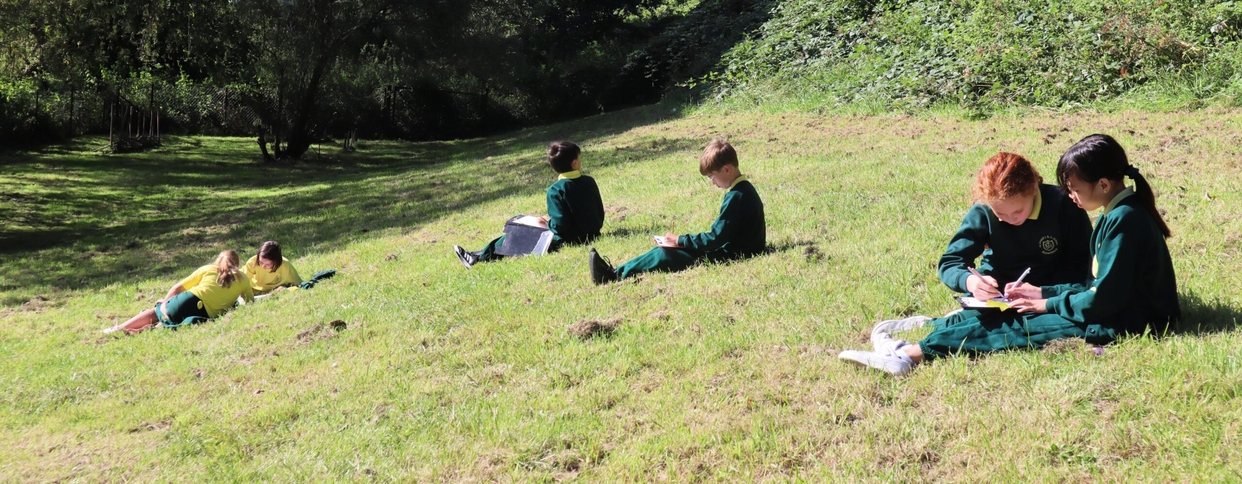
Intent
The intent of our Mathematics curriculum is to provide learning which is accessible to all and will maximise the development of every child’s ability and academic achievement. We see maths mastery as ‘deep, sustainable conceptual understanding for all.’ At St Joseph’s, this is achieved through talking about, investigating and representing mathematical concepts, using the Third Space Learning scheme of work. Children grow to ‘notice’ number and invest the time in experimenting, solving, concluding and explaining these patterns. We want our children to make rich connections across mathematical ideas to develop fluency, mathematical reasoning and competence when solving sophisticated problems. We intend for them to appreciate that mental calculations and written procedures, when chosen appropriately, can be performed efficiently, fluently and accurately to attain solutions. They develop a breadth of understanding of number, parts of a whole (fractions, decimals & percentages), geometry, measure, statistics and problem solving and are able to apply this to the world around them. We want children to understand that mathematics is an essential part of everyday life and apply their knowledge across other subjects. These skills prepare children for their next steps in education and life beyond primary school, and enable them to foster a sense of confidence in their ability to understand the need for mathematics for their successful future. As our pupils progress we wish to nurture an appreciation of the beauty and power of mathematics and a sense of enjoyment and curiosity about the subject.
Implementation
At St Joseph’s we follow the Third Space Long term and Medium term structure to plan our mathematics, supplemented by a variety of White Rose activities, to ensure pupils will: Become fluent in the fundamentals of mathematics so that they develop conceptual understanding and the ability to recall and apply knowledge rapidly and accurately. Solve problems by applying their mathematics to a variety of problems with increasing sophistication, including in unfamiliar contexts and to model real-life scenarios. Reason mathematically by following a line of enquiry and develop and present a justification, argument or proof using mathematical language. We have developed our ‘Principles of maths’
-
- Every lesson has a hook or story; to ensure the mathematical concepts having meaning to the children and they are able to visual and engage with the lesson.
- Every lesson begins with an opportunity to revisit; bringing prior learning to the forefront of our minds, keeping strategies and learning fresh to be applied to the world around us.
- Every lesson has appropriate choices of manipulatives and representations available; these are important tools in helping students to think and reason in more deep, meaningful ways
- Every lesson has high expectations on both the teacher’s and children’s use of mathematical vocabulary and answering in full sentences; to ensure children can make links with mathematical concepts and have the tools to talk and discuss mathematical principles and make generalisations (Using stem sentences and generalisations as a structure to apply to their understanding)
- Every lesson follows the necessary small steps of learning and has a clear intention; to ensure ALL children are able to access the same learning and follow lessons through well thought out small, manageable progression points.
Impact
In order to evaluate the level to which children are retaining knowledge and able to apply their learning to situations, we use a range of techniques:
-
- CPD to ensure that teacher pedagogy and assessment is secure.
- Regular feedback and pupil voice feedback.
- Subject monitoring including book conferences.
- Regular low stakes assessment, using teacher assessment and exit tasks.
- More formal assessment through cornerstones assessments and previous SATs to track progress.
- Cross-curricular opportunities to enable opportunities to apply the skills through other curriculum areas.
Maths Vocabulary List Yr1-Helpful-Hints-sheet Yr2-Helpful-Hints-sheet Yr3-Helpful-Hints-sheet Yr4-Helpful-Hints-sheet Yr5-Helpful-Hints-sheet Yr6-Helpful-Hints-sheetYr1-Arithmetic-Workbook-1 Yr2-Arithmetic-Workbook-1- Yr3-Arithmetic-Workbook-1- Yr4-Arithmetic-Workbook-1- Yr5-Arithmetic-Workbook-1 Yr6-Arithmetic-Workbook-1- YrR-Arithmetic-Workbook-1



